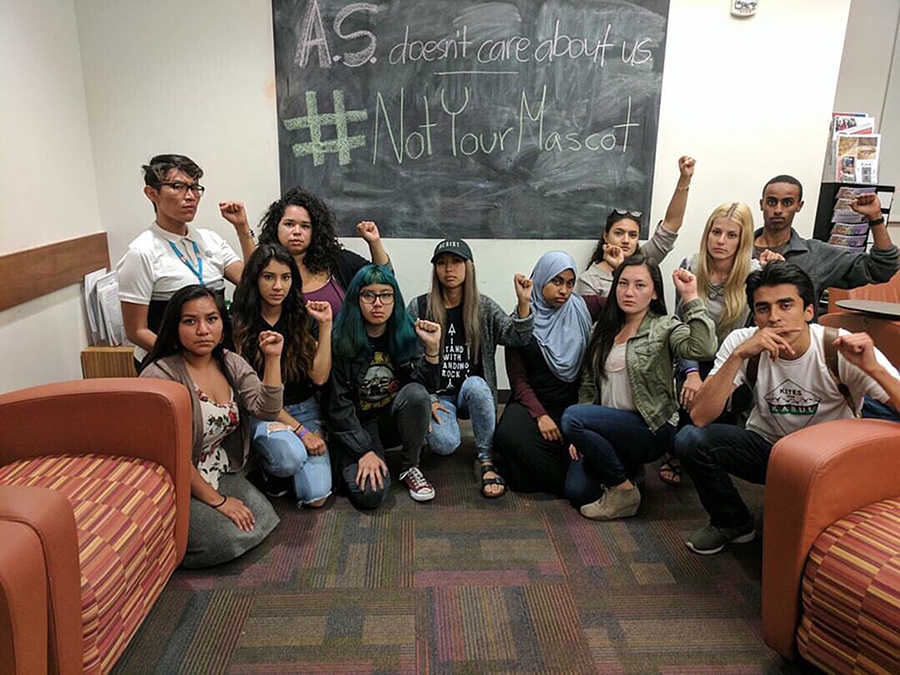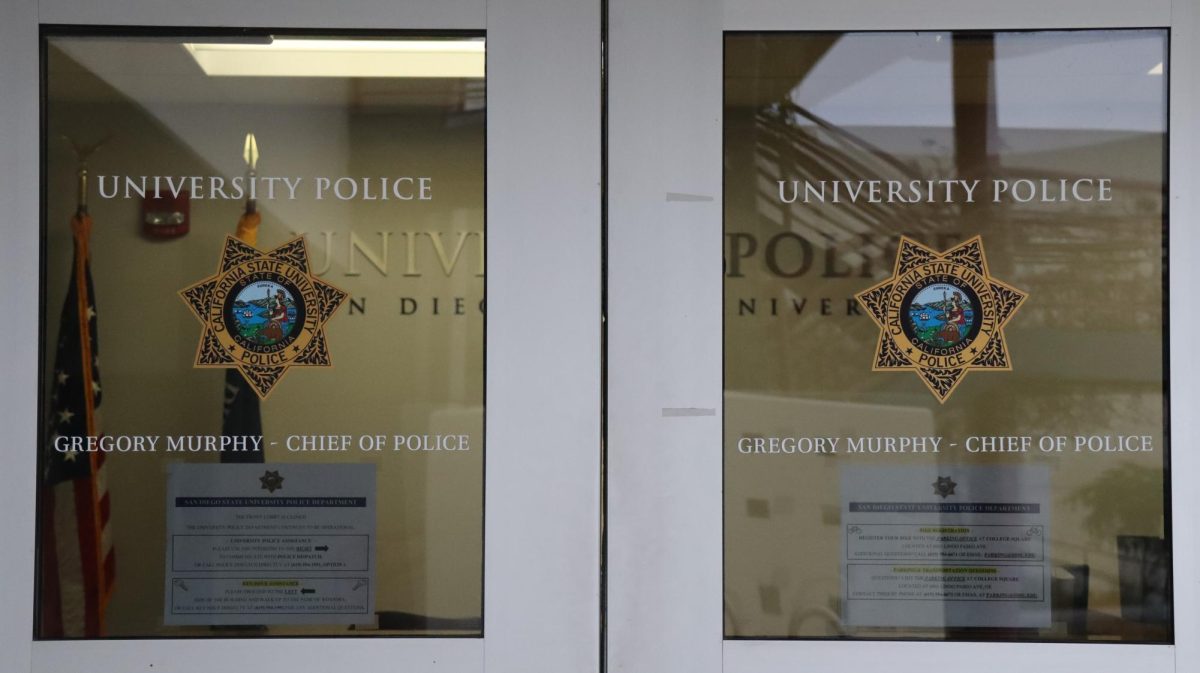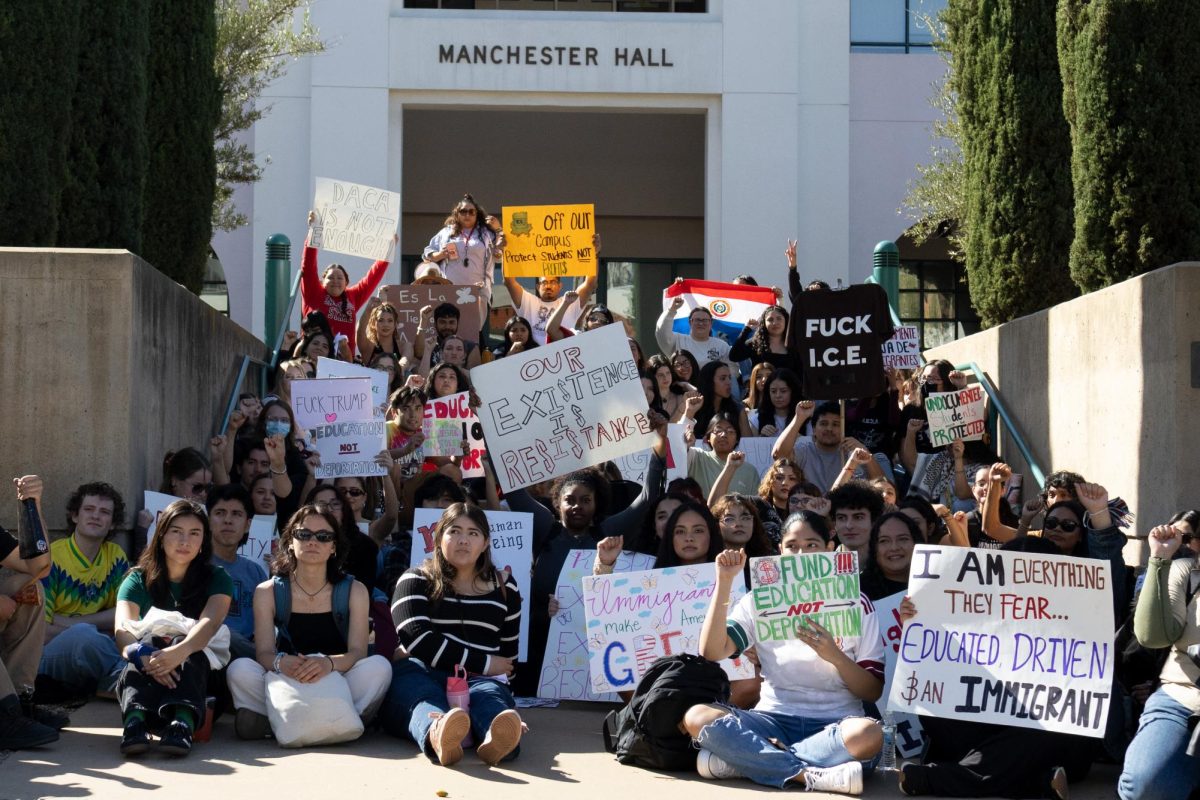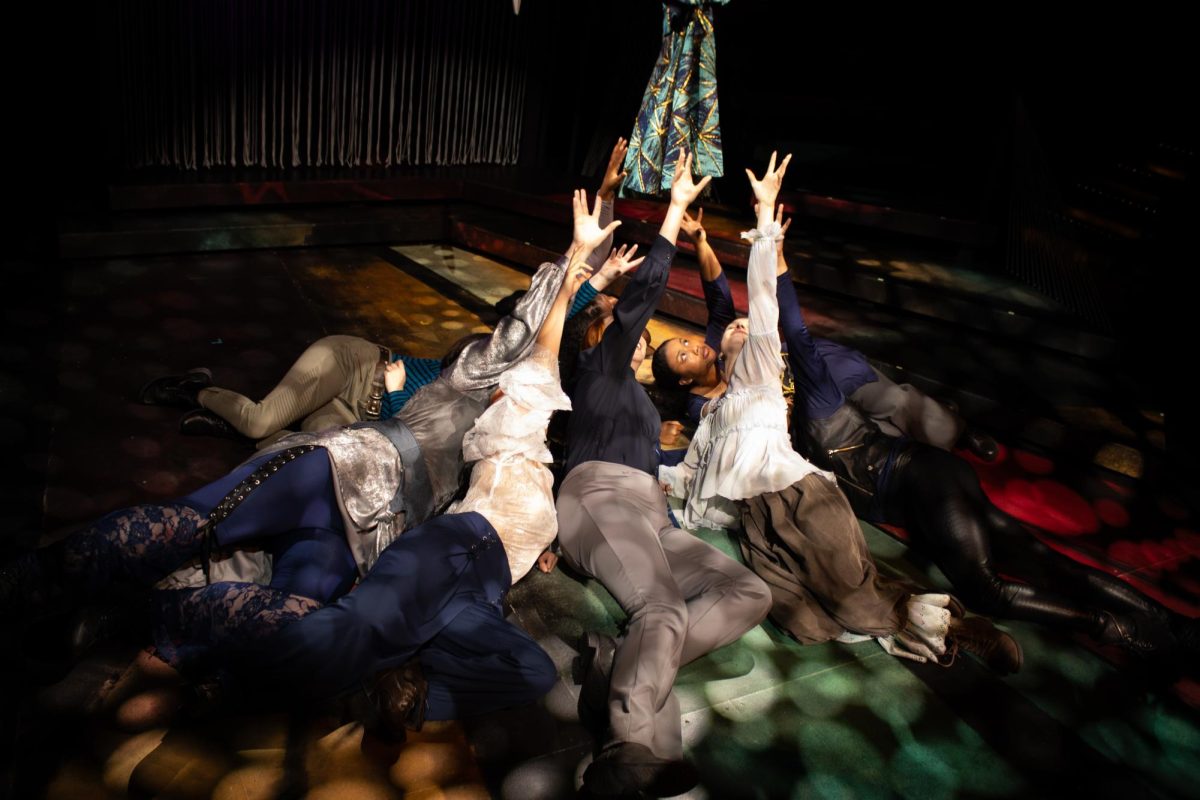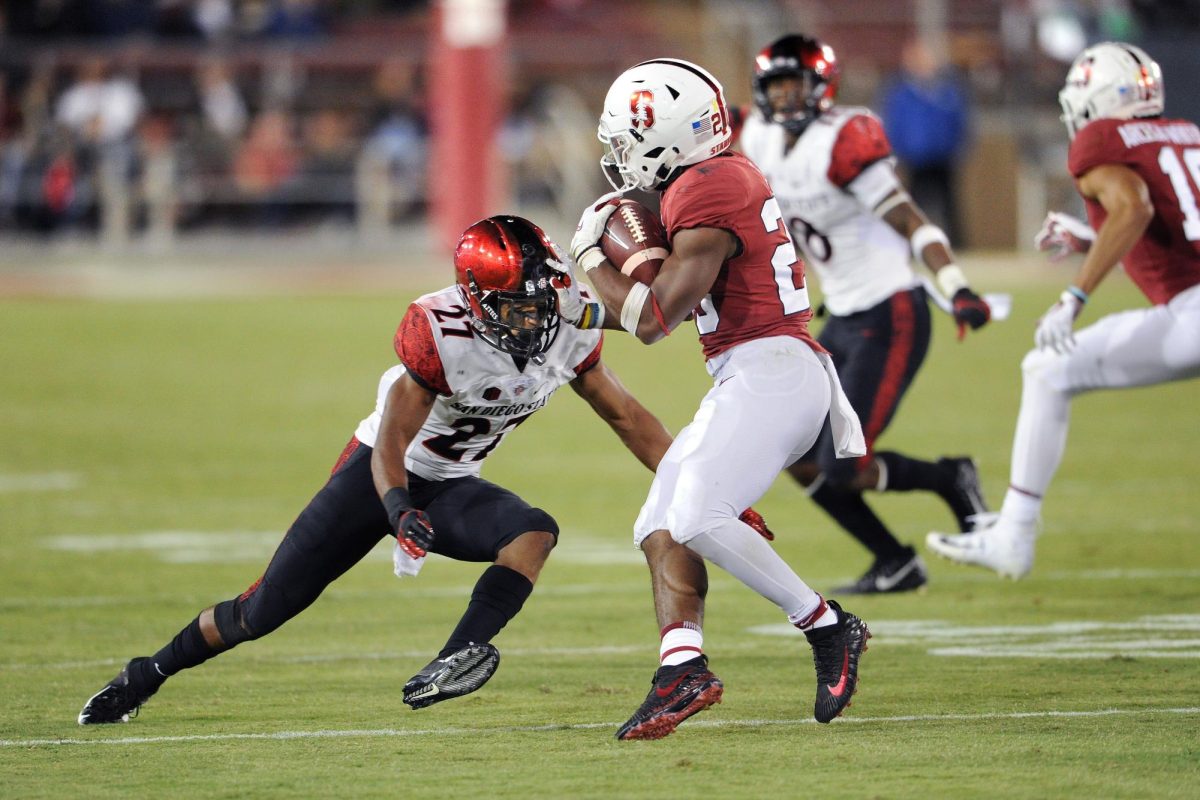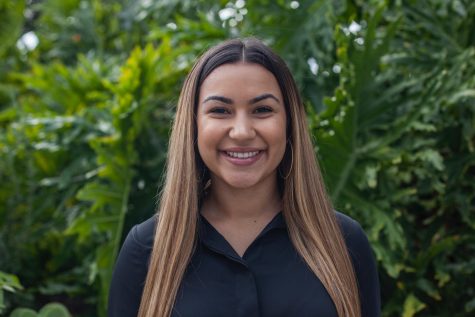Following the Associated Students University Council’s April 19 decision to reject retiring the Aztec mascot, 10 students resigned from their positions in A.S.
Since then, two more members, the Student Diversity Commission Chair Rachel Muntz and Representative Natalie Martinez, announced their resignations on Facebook.
Muntz said she took issue with the University Council’s overruling of her commission’s decision to pass the resolution.
“My commission made a unanimous decision to pass it , and when it was brought to University Council, it was treated like what the commission had done was worthless,” she said.
Muntz said she took issue with the way some of the executive officers, including outgoing A.S. President Jamie Miller, handled the issue.
“Jamie (Miller) had talked about respecting the work of the lower commission,” Muntz said. “And our work was completely disrespected.”
She said Executive Vice President Patty Masengale’s decision to consult with athletes didn’t seem right to her.
“I was sick of feeling like the cultural organizations on this campus weren’t being taken seriously,” she said.
Chloe Sension said she resigned from her position as Board of Directors student-at-large because A.S. does not uphold its value of diversity.
Sension said she also felt the Student Diversity Commission’s voice was not heard.
“A.S. has repeatedly disregarded different communities,” Sension said. “I no longer want to be affiliated with an organization that is not serving all students and is not advocating and being inclusive of all these different communities.”
Before casting her vote against approving the mascot resolution, Miller said students on both sides of the topic were not being respectful during the meeting.
“I felt like throughout that entire process, whether it was in that meeting space or not, there was a lot of negativity and undercutting of individuals on both sides,” Miller said.
Sension said she was bothered by Miller’s reasoning for voting against the mascot resolution.
“I think that students of color have repeatedly had their tone and approach policed,” she said. “And I don’t think it’s right and I don’t think it was the point of the resolution.”
Sension said it seemed to her as if A.S. leaders were more concerned with the way students were addressing each other than the actual conversation.
A.S. Vice President of University Affairs and President-elect Chimezie Ebiriekwe said he doesn’t think the members should have resigned as a result of the resolution.
“Quitting and resigning when you don’t get your way isn’t how to affect change,” he said. “Things don’t always go your way but you need to get back up and keep fighting for the cause that you set out for.”
Farris Nabulsi, who resigned from his position as a judicial affairs council justice, said he disagrees with the criticism he has heard about his decision to resign from A.S.
“There (are) only two weeks left so we actually didn’t quit, we lasted throughout the whole semester,” he said. “Resigning actually shows that we aren’t doing this for the title, we aren’t doing this to put on our resume, we are doing it to help all the people of color on campus.”
Sension said she supported the food pantry resolution the University Council voted on immediately after the mascot vote.
“After we walked out and resigned some of us did speak with Rachel who is the author of that resolution and let her know that we were not going to be present to vote on it and she completely understood,” she said.
Sension said she felt like the food pantry resolution would pass and it was more important that she took a symbolic stand in resigning than staying and voting for the food pantry resolution.
The mascot resolution was a 12-14 vote with one abstention. If one more person from University Council had voted to pass the resolution Ebiriekwe would have had to cast a tie breaking vote.
“My vote would have been a no,” Ebiriekwe said. “I see one side who claims that if you are not with them you are against them and frankly I don’t see that as productive. I see it as counterproductive.”
He said people should have been more open to the opinions of their peers.
“Although people have differing opinions than you, it does not mean they are against you and racist,” he said.




